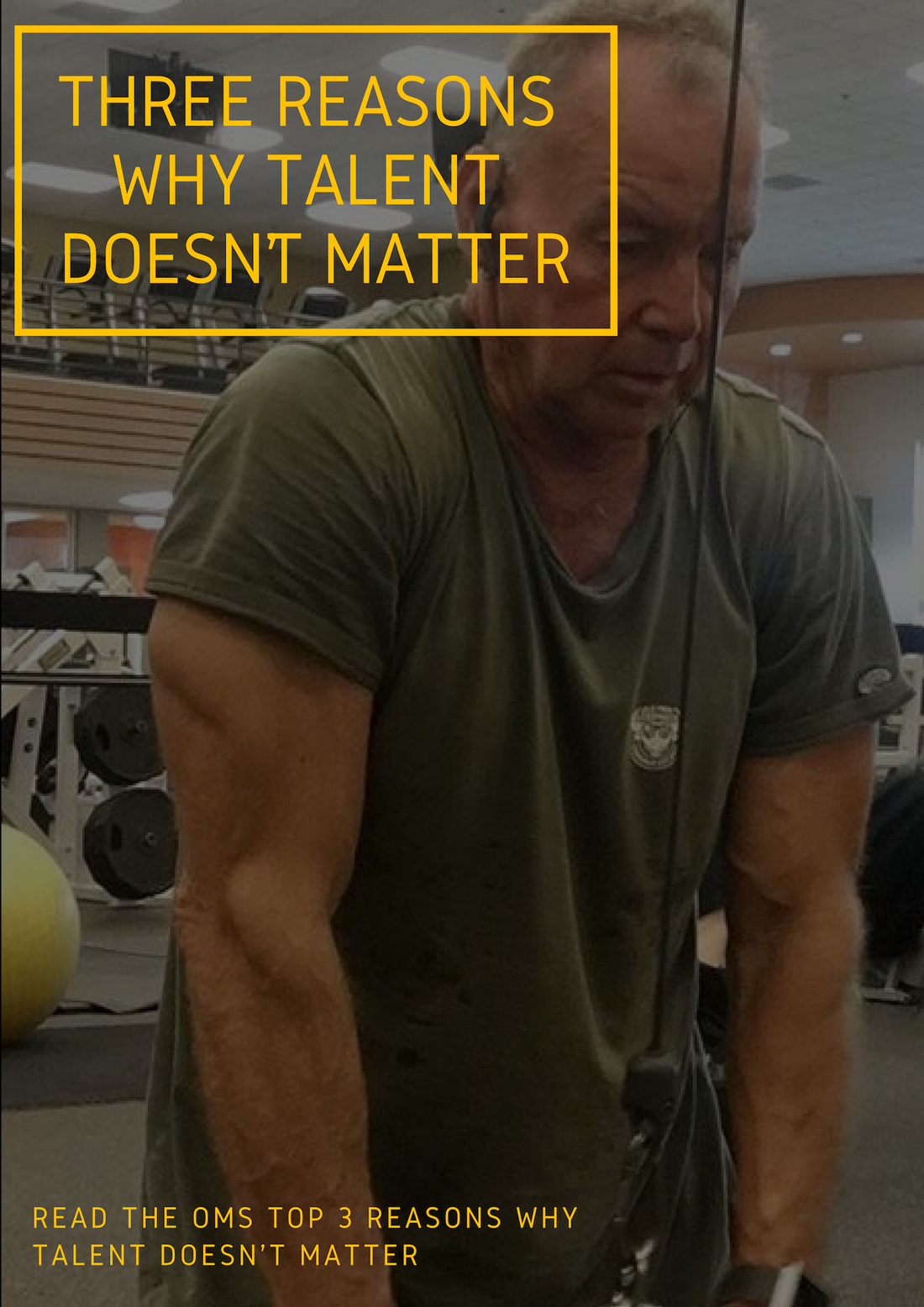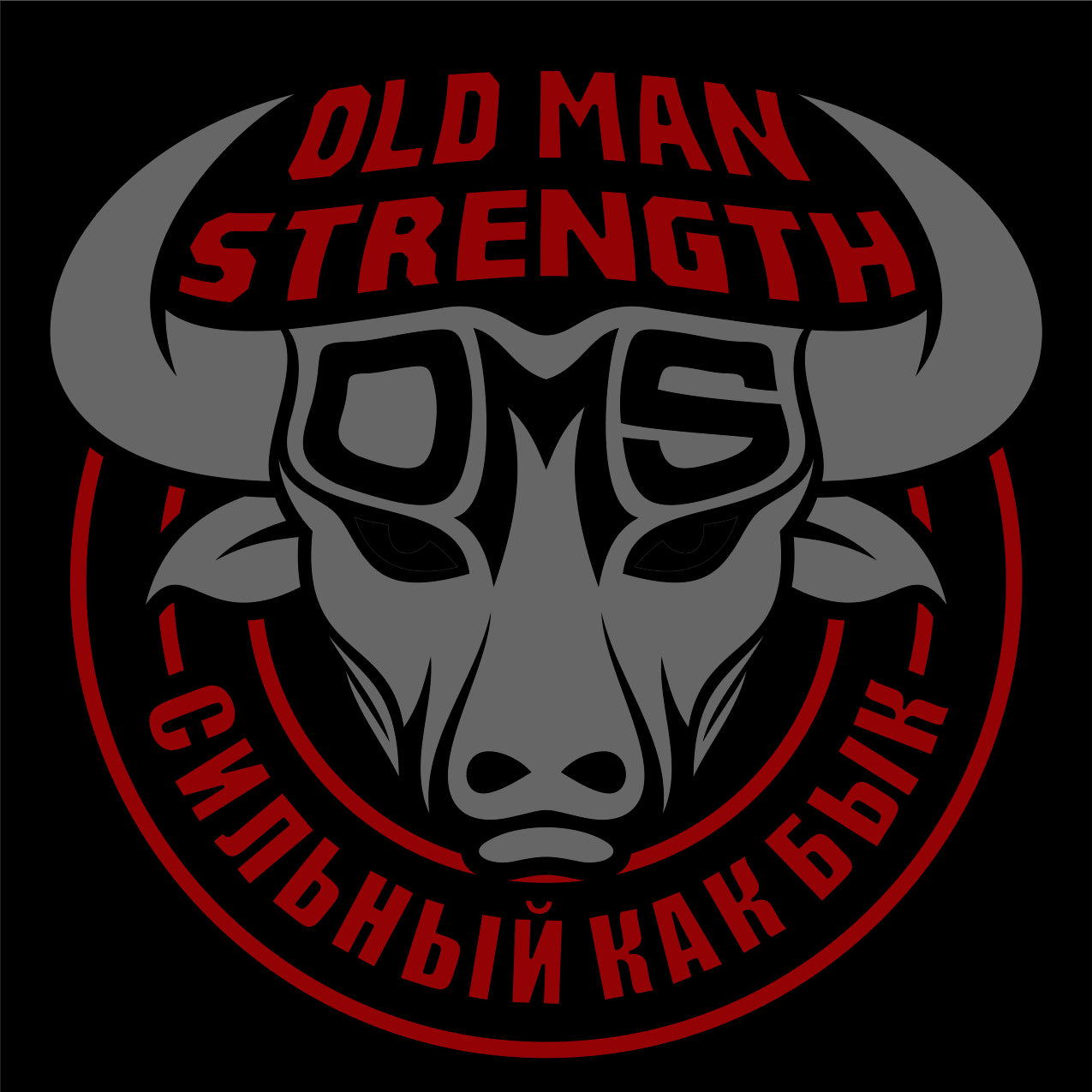
Three Reasons Why Talent Doesn’t Matter
The word “talent” has probably killed more old guys than cancer. It is the most overused, misguided and pointless word in the English language. It is what stops hundreds of thousands of overweight guys from turning things around and taking a first step towards fitness and strength. It is a blight, an inaccuracy, it shorthand for the problem we have when we can’t easily account for the ease with which a person does something that we regard as unusual, clever or useful. Even when we see it, when we really see it, we are watching a gift unwrap in front of us. From the age of four, Tiger Woods perfected a technique with constant and repetitive re-enforcement from his parents until it became second nature. Yes, he was talented. He had also been practising for 10,000 hours before we saw him.
1: There is no such thing as talent
A 1991 Florida Study on talent, documented by Matthew Syed in the book “Bounce”, provides probably the greatest illustration of the myth. The subjects of the study, a group of outstanding violinists at a renowned Music Academy in West Berlin, were divided into three groups; those at the pinnacle of performance, destined to become international soloists; a second group of excellent musicians who would likely achieve international success as part of the world’s best orchestras but not as soloists; and a third group of musicians who were destined to become great music teachers but not acclaimed performers, a course with less rigorous entrance and admission requirements.
The study showed no historical differences between the students in the groups. All began playing at around eight years of age, and decided to become musicians at around 14 years of age. The average number of teachers they had cycled through by then was 4.1, and they had studied 1.8 different types of instruments before selecting the violin. There was, however, one systematic difference between all of the students in the three groups.
By the age of twenty, the best violinists in the first group had spent an average of 10,000 hours practising. The second group had spent an average of 8,000 hours practising, and the third group spent an average of 4,000 hours practising. There were no exceptions to this pattern. Nobody who spent 10,000 hours practising was in any other group than the first group. Nobody in the first group had spent less than 10,000 hours practising. Hard work paid off. Talent was a myth.
2: Grit is what gets you out of bed
In life, in the gym, in the box, or at your local club, we’ve all seen examples of it and some of us have experienced it first-hand. That awkward and often fearful feeling of walking into a new place, knowing what you want to achieve but not knowing how to get there, and feeling as though everyone there knows everyone else and nobody knows you. The first hours learning anything are tough on a number of levels – you need to admit you don’t know how to do things; you need to be man enough to accept that others are better than you for the time being; and you need to be strong enough in your own mind to know that you just need to keep going while your body and mind catch up. In combat sports training, there’s also a fear and a pain element which makes this uphill climb see steeper and the relative aspect harder. As Angela Duckworth in the book “Grit” lays out in two simple equations:
- Talent * Effort = Skill.
- Skill * Effort = Results.
Superimposing these onto the results from the Florida study on talent makes it even simpler.
Practice * Grit = results.
When Woody Allen said “80% of success is showing up”, he was onto something. If you start, and you keep going, you will be comfortable, you will get better, and you will be successful. True, many of you reading this don’t have 10,000 hours to learn how to sambo, but you do have 10 hours to learn to deadlift, bench or squat. We all have 10 hours. This month you spent 40 hours looking at your phone.
3: Persistence is what makes the difference
Part of the gift of being old is that all of us have been physically injured, some seriously, some moderately, others of us have been stopped by life adversity or circumstance, and all of us have had to overcome. For those making the decision to change the direction of their lives, and for those who are already on the journey, we know that staying strong is far more mental than it is physical.
We’ve written elsewhere about how injury affects our training and mental well-being, but rest assured it isn’t talent that gets you through the tough times. As Angela Duckworth writes, grit is enabled through two ingredients – passion and perseverance. Without passion for what you want to achieve, its just a time allocation. Those of us who want to be stronger, know its something we need to do. We’ve made that decision because of what we will be, what we will stand for, what we will offer to those around us at the end of our journey. Passion requires a burning ember of purpose. We need it, so we want it.
Persistence is the gift that life experience gives us. As Coolidge said “”Nothing in the world can take the place of persistence. Talent will not; nothing is more common than unsuccessful men with talent. Genius will not; unrewarded genius is almost a proverb. Education will not; the world is full of educated derelicts. Persistence and determination alone are omnipotent. The slogan ‘Press On’ has solved and always will solve the problems of the human race”. It is these two ingredients – passion and persistence that drive us and give us the edge as older guys to stay on track and make the changes we need to. Bodies heal. When we can train again, we train.
So for all those wondering if they have the talent to lose those 20 pounds, you don’t need it. Turn up, keep turning up, and when you can’t turn up, turn up when you can. It is worth keeping a fact in mind – studies show that 82 percent of people who want to lose weight don’t go to weights, combat or resistance training gyms because of negative feelings towards their perception of what a health club environment would be, how they will be judged and the assumed level of knowledge they need to have. The nervousness and fear is real. Take some consolation from the reality that everyone in there has felt it, and everyone in there knows it. And if that isn’t enough, remember what the Duke says – “Tomorrow is the most important thing in life. Comes into us at midnight very clean. It’s perfect when it arrives and it puts itself in our hands. It hopes we’ve learned something from yesterday.”
So what are you doing today ? Join the OMS community and start today.


